Automotive-grade timing solutions are designed to meet the demanding clocking needs of in-vehicle systems. The new AEC-Q100-qualified timing devices include Si5332 any-frequency programmable clock generators, Si5225x PCIe Gen1/2/3/4/5 clocks, Si5325x PCIe buffers and Si5335x fanout clock buffers. These timing devices help automotive OEMs and Tier-1 suppliers simplify clock tree design, reduce system points of failure, increase system reliability and optimize the performance of high-speed serial data transfer. The devices target a wide range of automotive applications including camera sub-systems, radar and LIDAR sensors, advanced driver assistance systems (ADAS), autonomous driving control units, driver monitoring cameras, infotainment systems, Ethernet switches, and GPS and 5G connectivity.
Automotive system developers have traditionally used quartz crystal and oscillator timing 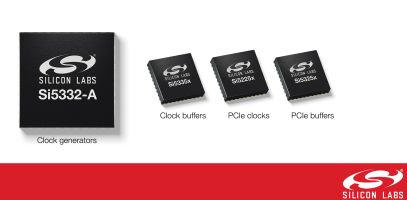 solutions, which are prone to shock and vibration failure as well as start-up issues, resulting in degraded system-level reliability. As automotive infotainment platforms continue to adopt new features and ADAS systems increase complexity and data acquisition rates, clocking requirements have become more demanding, requiring a more diverse mix of frequencies and lower jitter reference clocks. Rather than using more quartz-based components to satisfy a growing list of timing requirements, developers now have the option to simplify their clock tree designs and increase system reliability by using Silicon Labs’ automotive-grade low-jitter, any-frequency clock generators and buffers.
solutions, which are prone to shock and vibration failure as well as start-up issues, resulting in degraded system-level reliability. As automotive infotainment platforms continue to adopt new features and ADAS systems increase complexity and data acquisition rates, clocking requirements have become more demanding, requiring a more diverse mix of frequencies and lower jitter reference clocks. Rather than using more quartz-based components to satisfy a growing list of timing requirements, developers now have the option to simplify their clock tree designs and increase system reliability by using Silicon Labs’ automotive-grade low-jitter, any-frequency clock generators and buffers.
Automotive in-vehicle applications require a higher operating temperature range (Automotive Grade 2, -40 to +105°C) and qualification adhering to rigorous AEC-Q100 automotive standards. Competing timing suppliers offer limited solutions to meet these stringent market requirements. As a result, automotive developers have been forced to add more quartz crystals and oscillators to their designs to generate the increased number of reference clocks required. This approach comes with limitations such as a larger PCB footprint, higher BOM cost, and degraded system reliability. In addition, higher precision, low-jitter oscillators are expensive, with automotive-grade versions commanding a premium price.
Alternatively, consolidating multiple reference clocks into a single clock generator IC greatly reduces the number of quartz crystals and oscillators in a design, minimizing the potential points of failure and increasing overall system reliability. The Si5332 clock leverages Silicon Labs’ proven MultiSynth technology to provide any-frequency, any-output clock synthesis with more than 60% lower jitter than competing automotive clock solutions. Supporting up to eight clock outputs, selectable signal formats per output clock (LVDS, LVPECL, HCSL, LVCMOS) and independent 1.8-3.3-V VDDO, the Si5332 clock easily interfaces to a broad range of FPGAs, ASICs, Ethernet switches/PHYs, processors, GPUs, SoCs, and PCIe Gen1/2/3/4/5 and NVLink SerDes. Clock synthesis, clock distribution and format/level translation are consolidated on-chip, enabling optimized single-IC clock tree solutions for automotive designs.
The Si5332 clock generators and Si5335x clock buffers are configurable and customizable using Silicon Labs’ flexible ClockBuilder Pro software, enabling developers to create optimized solutions that exactly match specific clock tree requirements, with samples shipping in less than two weeks.
Samples and production quantities of automotive grade Si5332 clock generators, Si5225x PCIe clocks, Si5325x PCIe buffers and Si5335x clock buffers are available now in 32-QFN and 40-QFN package options. Silicon Labs offers a wide range of evaluation boards (EVBs) for automotive grade timing devices, with prices starting at $179 each (USD MSRP). The EVBs work seamlessly with ClockBuilder Pro, enabling developers to quickly customize a device and evaluate performance. Contact your local Silicon Labs sales representative or authorized distributor for automotive grade clock and buffer pricing.
More information: silabs.com/automotive-timing-solutions.
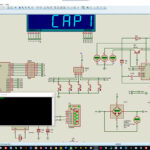
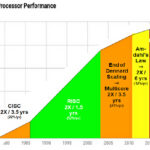
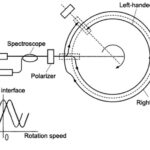
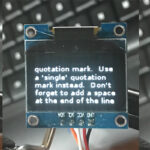
Leave a Reply